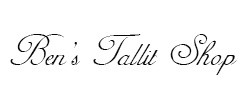Perhaps occasionally someone buying tefillin doesn't really ask any questions; as long as they are called "tefillin," that's good enough for him. But most prospective tefillin buyers are more discerning. Invariably they want some sort of assurance that the tefillin they are buying is indeed kosher. A customer sent us a message today, posing the question very succinctly:
Are your tefilim [sic] certified kosher?
The spelling mistake can either be attributed to tiny cellphone buttons or daylight on the screen - or perhaps a buyer who knows very, very little about tefillin. So in case the latter applies, I wrote a long reply spelling out the answer step-by-step, which I'm sharing below.
Just about any seller you ask will tell you their tefillin are certified kosher. That can mean different things.
1) All tefillin are assembled from different "parts," namely the parchments inside, the boxes themselves and the straps. A tefillin seller might have no certification on the boxes or straps, but because the parchments were run through a computer scan, they consider the tefillin to be kosher. This is very misleading, because the computer check is really just a tool to assist the mandatory, detailed inspection performed by a highly trained parchment checker ("magihah").
2) A tefillin seller might have certification for the leather boxes and straps, and therefore considers the tefillin certified kosher even though the parchments were not properly checked manually. Of course different kashrut organizations maintain different standards.
3) The tefillin maker may use boxes and straps with reliable kosher certification, and he oversees the parchment production process himself (typically because he worked as a parchment writer - "sofer STaM" - for many years). Normally this means he has the parchments scanned with a special computer program and has them checked by a certified parchment checker. If any halachic questions arise, he makes the final judgement call himself.
4) The tefillin maker uses boxes with kosher certification, straps with kosher certification and he oversees the parchment production process himself (typically because he worked as a parchment writer - "sofer STaM" - for many years). Normally this means he has the parchments scanned with a special computer program and has them checked by a certified parchment checker. However, there is a highly qualified outside rabbinical authority who comes in once or twice a week to do a general inspection and to tackle any halachic questions that may arise. Generally these questions relate to the form of the letters; in some cases there may be a slight doubt as to whether a certain letter was formed properly (e.g. a Yud that comes down a bit far and could be construed as a Vav)
Obviously more oversight in the various stages of production, and higher kashrut standards can play a significant part in the final price of the tefillin.
 United States Dollar
United States Dollar
 Shekel
Shekel
 Euro
Euro
 British Pound
British Pound
 Australian Dollar
Australian Dollar
 New Zealand Dollar
New Zealand Dollar
 Canadian Dollar
Canadian Dollar
